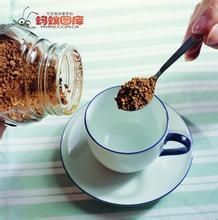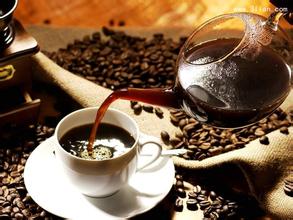The taste of Ecuadorian coffee is crisp. Introduction to the characteristics of boutique coffee beans in the manor area.
Ecuadorian coffee has distinctive South American coffee characteristics. The fragrance is soft, as if you can go back to the ancient and mysterious Inca empire. Coffee is a good history, you need to savor it carefully in order to understand the vicissitudes of life.
Balanced with low acidity and rich aroma. The bitter taste is not obvious, the taste is clear, but there is a lingering aftertaste for a long time. The superior environment creates the crisp character of coffee, and the enthusiasm of coffee farmers gives coffee enthusiastic life. this high-quality coffee is not available to all friends. It is hoped that Ecuador will one day be as famous as the country of bananas and famous in the coffee world as the country of coffee.
Dream of green natural coffee in Galapagos, dream of this magical land Ecuador is one of the few countries in South America that produces both Arabica coffee and Robbins coffee. However, as the land suitable for Arabica coffee trees is decreasing, the production of Robbins coffee is gradually increasing. The best Arabica coffee comes from the Andes, especially the Chanchagu Valley (ChanchamgoValley), which divides into two series of mountains, extending from south to north to central Ecuador Arabica coffee tree was first introduced to Ecuador (Ecuador) in 1952, its coffee quality is very good, especially the coffee harvested in early June. Ecuadorian coffee beans can be divided into two varieties: Galapagos and Gigante, both of which have the characteristics of large granules and heavy weight. Ecuadorian coffee can be divided into first class (No.1) and super excellent (ExtraSuperior) according to its quality. They are mainly exported to the Nordic countries of Scandinavia.
The main problem facing coffee producers is their efforts to maintain stable quality. The coffee here is generally well-balanced and refreshing, with a unique aroma.

Important Notice :
前街咖啡 FrontStreet Coffee has moved to new addredd:
FrontStreet Coffee Address: 315,Donghua East Road,GuangZhou
Tel:020 38364473
- Prev

Panamanian Cupid Fine Waste Coffee Estate with strong taste Flavor Features Introduction
Panama's current Constitution entered into force on 11 October 1972 and has been amended four times, in 1978, 1983, 1994 and 2004. The Constitution stipulates that the three powers of the state are separated. The president is the head of state. He is elected directly for a term of five years. He may not be re-elected, but he may run for alternate terms.
- Next

An introduction to the characteristics of fine coffee beans in the manor area
After the first World War, the long-standing dissatisfaction of the Ugandan people with colonial rule finally broke out. A national general strike and rural riots broke out in 1918. In 1919 Buganda launched a democratic movement under the leadership of the Bataka Party and the African Farmers' Union of Uganda. In 1921, Uganda's first national political party, the Ugandan National Congress Party, was established and proposed the implementation of universal suffrage.
Related
- Detailed explanation of Jadeite planting Land in Panamanian Jadeite Manor introduction to the grading system of Jadeite competitive bidding, Red bid, Green bid and Rose Summer
- Story of Coffee planting in Brenka region of Costa Rica Stonehenge Manor anaerobic heavy honey treatment of flavor mouth
- What's on the barrel of Blue Mountain Coffee beans?
- Can American coffee also pull flowers? How to use hot American style to pull out a good-looking pattern?
- Can you make a cold extract with coffee beans? What is the right proportion for cold-extracted coffee formula?
- Indonesian PWN Gold Mandrine Coffee Origin Features Flavor How to Chong? Mandolin coffee is American.
- A brief introduction to the flavor characteristics of Brazilian yellow bourbon coffee beans
- What is the effect of different water quality on the flavor of cold-extracted coffee? What kind of water is best for brewing coffee?
- Why do you think of Rose Summer whenever you mention Panamanian coffee?
- Introduction to the characteristics of authentic blue mountain coffee bean producing areas? What is the CIB Coffee Authority in Jamaica?

